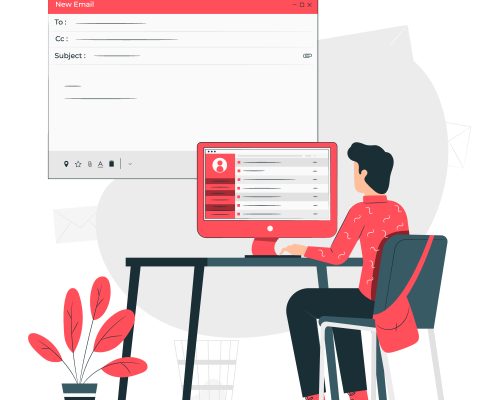Navigating the Disability Allowance Process
Gain valuable insight into the process of applying for a disability allowance, eligibility criteria, and available support for people suffering from psychosocial, intellectual, and dual disabilities.

Disability allowance, a financial benefit designed to support those living with disabilities, can be a critical lifeline for individuals managing psychosocial, intellectual, and dual disabilities like chronic mental health conditions, autism, and Down syndrome.
In this article, we will delve into vital information on disability allowance, including its eligibility criteria, application process, and the various support systems available for individuals with disabilities and their carers.
Understanding Disability Allowance in Australia
In Australia, disability allowance refers to a range of financial benefits and support services aimed at helping individuals with disabilities and their carers. It is essential to understand the various types of allowances available and their respective eligibility criteria to access the most appropriate support for your needs.
Disability Support Pension
The Disability Support Pension (DSP) is a financial payment provided by Centrelink to eligible individuals experiencing physical, intellectual, or psychiatric impairments that prevent them from working. The Department of Social Services outlines specific eligibility criteria, including a minimum qualifying age, residence requirements, income and assets tests, and a significant impairment or disability lasting at least two years.
Carer Payment
The Carer Payment is another form of disability allowance designed to provide financial support to individuals who provide constant care to someone with a severe disability or medical condition. According to the Australian Government Services Australia website, eligibility for this payment depends on factors such as the care receiver’s medical condition, personal circumstances of the carer, and income and assets tests.
Carer Allowance
The Carer Allowance is a supplementary payment for carers who provide additional daily care to someone with a disability or medical condition. While not income and assets tested, the allowance requires meeting specific eligibility criteria, such as age, residence and care requirements.
Disability Allowance Application Process
Applying for disability allowance involves multiple steps, including gathering necessary documentation, completing the application form, and attending assessments if required.
Gather Relevant Documentation
Before beginning the application process, it is crucial to gather essential documents and information to support your claim. This may include:
- Proof of identity and residence
- Medical evidence and assessments from healthcare professionals
- Employment and income details
- Information on assets and investments
Complete the Application Form
Next, complete the relevant application form for the disability allowance you are applying for. Application forms can be accessed online through the Centrelink website, and typically require your personal information, healthcare professional details, and financial records.
Attend Required Assessments
Depending on the type of disability allowance you are applying for, you may be required to attend assessments or appointments to confirm your eligibility. These assessments may include medical, psychological, or occupational evaluations conducted by appropriate healthcare professionals.
Accessing Additional Support Services for People with Disabilities
In addition to financial benefits, various support services and programs are in place to assist individuals with disabilities and their carers in Australia.
National Disability Insurance Scheme (NDIS)
The National Disability Insurance Scheme (NDIS) is a government initiative that provides funding and support for people with disabilities to access essential services, support programs, and aids and equipment. Eligibility for NDIS depends on factors such as age, residence, and the nature and severity of the disability.
My Aged Care
My Aged Care is a government-funded program that supports older Australians (usually 65 years or older) with disabilities access services to help them live independently, such as home care packages, respite care, and personal care services. More information on eligibility and services provided can be found on the My Aged Care website.
Tips for Navigating the Disability Allowance Process
Navigating the disability allowance process can be complex, but the following tips can help you better manage your application and access the appropriate support.
Seek Professional Assistance
Seeking guidance from qualified healthcare professionals, such as General Practitioners, psychologists, or occupational therapists, can help you understand your eligibility and gather necessary documentation for your application. Additionally, financial advisors or social workers can provide guidance on managing the financial aspects of disability allowances.
Utilise Online Resources
There are various online resources available to help you understand the disability allowance process, including government websites and disability support organisations. These resources can provide valuable information on eligibility criteria, application procedures, and relevant support options.
Connect with Support Networks and Peer Groups
Connecting with others who have experience with the disability allowance process can provide invaluable insights, support, and guidance. Support networks and peer groups can be found through local community organisations, online forums, or social media groups.
Navigating the complex world of disability allowances and support services can be challenging, but with the right knowledge and resources at your fingertips, you can confidently make informed decisions for yourself or your loved ones. Understanding the types of disability allowances available, the application process, and additional support services will ensure that you are well-equipped to access the most appropriate assistance for your unique circumstances.
Are you struggling to navigate the disability allowance process? Let The Disability Company help you Contact us today on 1300 897 848.
Check more events and stories

Fresh Goals, Bright Future: Maximising Your NDIS Plan in 2025
A new year is a fresh start, a time to reflect on the past and plan for the future. For NDIS participants, 2025 is the perfect opportunity to review your goals, evaluate your supports, and ensure your plan is aligned with your aspirations.

Starting the New Year Right with Your NDIS Plan
Celebrate the strength, resilience, and leadership of people with disabilities on International Day for Persons with Disabilities. Learn how Disability Co is amplifying voices, fostering inclusion, and supporting individuals on their journey toward independence and leadership.

Embracing Christmas with the Support of NDIS: A Time for Joy, Care, and Inclusion
Celebrate the strength, resilience, and leadership of people with disabilities on International Day for Persons with Disabilities. Learn how Disability Co is amplifying voices, fostering inclusion, and supporting individuals on their journey toward independence and leadership.

Amplifying Leadership for an Inclusive Future
Celebrate the strength, resilience, and leadership of people with disabilities on International Day for Persons with Disabilities. Learn how Disability Co is amplifying voices, fostering inclusion, and supporting individuals on their journey toward independence and leadership.

What to Look for When Choosing an In-Home Care Service Provider
Choose an in-home care provider that is a Registered NDIS Provider with qualified staff, clear communication, personalized plans, and a focus on safety. They should offer flexible services and respect cultural preferences, ensuring independence and well-being.

Creating a Balanced Routine: Daily Tips for Individuals with Chronic Conditions
This article outlines strategies for individuals with chronic conditions to create a balanced daily routine, focusing on self-care, goal-setting, rest, and meaningful activities to enhance well-being.

